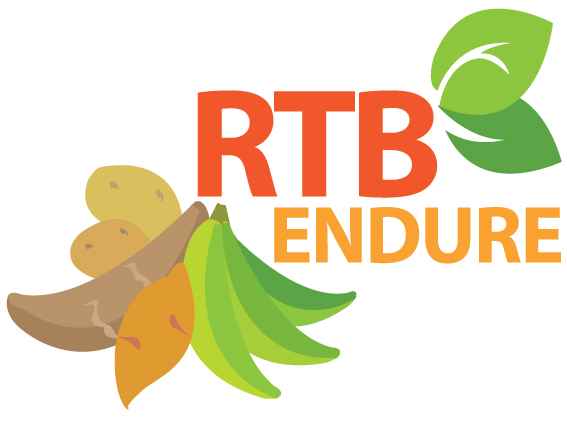
Expanding utilization of roots, tubers and bananas and reducing their postharvest losses
Implementation
It is possible to identify two main phases of RTB-ENDURE implementation: a "preparatory phase" and a "research implementation phase". The first year of the project can be referred to as "preparatory phase".
The preparatory phase has primarily entailed the establishment of crop specific research teams, a preliminary identification of the postharvest innovations to work on, a validation of the proposed innovations and the selection of the most promising ones that will be tested and validated during the research implementation phase. Furthermore training and capacity building activities have been conducted to strengthen the required capacities of the different teams in order to successfully contribute to achieve the overall objectives of the project.
During the project's inception workshop in March 2014, the participants were facilitated to form crop specific research teams (potato, banana, sweetpotato and cassava) for jointly identifying some postharvest innovations with high potential to contribute to the project objectives. The different teams included representatives of various CGIAR (CIP, IITA, CIAT, Bioversity International and ILRI) and non-CGIAR potential partners (CIRAD, NARO, MAIF, Makerere University, NGOs, private sector, etc.). Each team, taking also into account the outcomes of a planning workshop held in mid-2012, selected one to two options and developed short proposals for undertaking scoping studies that would assist in exploring and validating the feasibility, likely adoption and potential impact of the proposed interventions.
Following ad hoc facilitation (e.g., training sessions on gender responsive market studies and analysis) and based on the results of the scoping studies, the four teams developed and submitted seven business cases for research funding.
Even though continuous support has been provided to the different teams in order to help them strengthening their proposals, during the preparatory phase the project has adopted a rather competitive approach and the teams were aware that only the most robust and convincing options would have been funded. The business cases went through rounds of internal (by the project management and the project's Process Committee that was established at the inception of the project in order to guide the process of developing and selecting the options for subsequent research implementation) and external reviews (by leading experts in the area of RTB postharvest and value chains). Finally, four research options have been selected for funding, one for each crop.
The selection of the four research options to be funded has officially closed the preparatory scoping phase, and marked the beginning of the research implementation phase (a meeting-cum-training workshop was organized to officially launch the new phase). The different team members had worked together for a number of months for jointly identifying and analysing new market opportunities and the most promising innovations. The scoping activities and the development of the business cases had contributed to validate (or otherwise) some of their preliminary assumptions and strengthen their social capital and capacity to conduct research in partnership. By the end of the first year, all research teams had been brought up to speed about the expected project outputs and outcomes and their capacities to implement the PMCA methodology and mainstream gender in their research activities have been strengthened. The four teams have now confidently moved into the research implementation phase where they conduct on the ground testing and validation of selected innovations for improved postharvest management in Uganda, with evidence of relevance for other countries in East Africa. It is expected that by the end of the project the different team will be able to provide evidence of their proof of concepts and of the technical feasibility, economic viability and social acceptability of the proposed innovations.